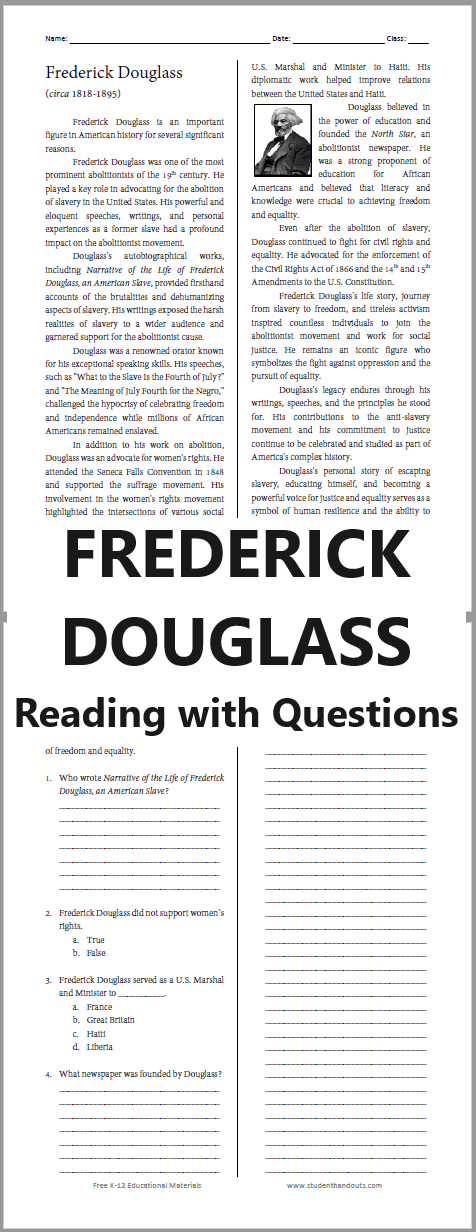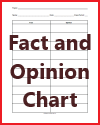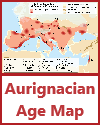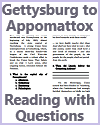| Frederick Douglass Reading with Questions |
|---|
| www.studenthandouts.com ↣ Historical Figures ↣ "D" Names ↣ Frederick Douglass |
|
Frederick Douglass is an important figure in American history for several significant reasons.
Frederick Douglass was one of the most prominent abolitionists of the 19th century. He played a key role in advocating for the abolition of slavery in the United States. His powerful and eloquent speeches, writings, and personal experiences as a former slave had a profound impact on the abolitionist movement.  Douglass's autobiographical works, including Narrative of the Life of Frederick Douglass, an American Slave, provided firsthand accounts of the brutalities and dehumanizing aspects of slavery. His writings exposed the harsh realities of slavery to a wider audience and garnered support for the abolitionist cause.
Douglass's autobiographical works, including Narrative of the Life of Frederick Douglass, an American Slave, provided firsthand accounts of the brutalities and dehumanizing aspects of slavery. His writings exposed the harsh realities of slavery to a wider audience and garnered support for the abolitionist cause.
Douglass was a renowned orator known for his exceptional speaking skills. His speeches, such as "What to the Slave Is the Fourth of July?" and "The Meaning of July Fourth for the Negro," challenged the hypocrisy of celebrating freedom and independence while millions of African Americans remained enslaved. In addition to his work on abolition, Douglass was an advocate for women's rights. He attended the Seneca Falls Convention in 1848 and supported the suffrage movement. His involvement in the women's rights movement highlighted the intersections of various social justice causes. After the Civil War, Douglass served in various government positions, including as a U.S. Marshal and Minister to Haiti. His diplomatic work helped improve relations between the United States and Haiti. Douglass believed in the power of education and founded the North Star, an abolitionist newspaper. He was a strong proponent of education for African Americans and believed that literacy and knowledge were crucial to achieving freedom and equality. Even after the abolition of slavery, Douglass continued to fight for civil rights and equality. He advocated for the enforcement of the Civil Rights Act of 1866 and the 14th and 15th Amendments to the U.S. Constitution. Frederick Douglass's life story, journey from slavery to freedom, and tireless activism inspired countless individuals to join the abolitionist movement and work for social justice. He remains an iconic figure who symbolizes the fight against oppression and the pursuit of equality. Douglass's legacy endures through his writings, speeches, and the principles he stood for. His contributions to the anti-slavery movement and his commitment to justice continue to be celebrated and studied as part of America's complex history. Douglass's personal story of escaping slavery, educating himself, and becoming a powerful voice for justice and equality serves as a symbol of human resilience and the ability to overcome adversity. Overall, Frederick Douglass is celebrated not only for his significant impact on the abolitionist movement but also for his broader contributions to the ongoing struggle for civil rights and social justice in the United States. His life and work serve as an enduring reminder of the power of activism, education, and the pursuit of freedom and equality. 1. Who wrote Narrative of the Life of Frederick Douglass, an American Slave? Frederick Douglass 2. Frederick Douglass did not support women’s rights. b. False 3. Frederick Douglass served as a U.S. Marshal and Minister to __________. c. Haiti 4. What newspaper was founded by Douglass? North Star 5. Imagine that you are a white person in the North in the decade before the Civil War, uncertain if you support the abolitionist cause. What impact would a man like Frederick Douglass have on you? Answers will vary. Click here to print. Answers are above. |
 |  |  |  |  |  |
| UNIT I: | Early America | UNIT IX: | Discontent and Reform | ||
| UNIT II: | Colonial Period | UNIT X: | War, Prosperity, and Depression | ||
| UNIT III: | American Revolution | UNIT XI: | New Deal and World War II | ||
| UNIT IV: | New National Government | UNIT XII: | Postwar America | ||
| UNIT V: | Westward Expansion | UNIT XIII: | Decades of Change | ||
| UNIT VI: | Sectional Conflict | UNIT XIV: | New Conservatism | ||
| UNIT VII: | Civil War and Reconstruction | UNIT XV: | Into the Twenty-first Century | ||
| UNIT VIII: | Growth and Transformation | UNIT XVI: | Polarization and Deglobalization |
| www.studenthandouts.com ↣ Historical Figures ↣ "D" Names ↣ Frederick Douglass |














































